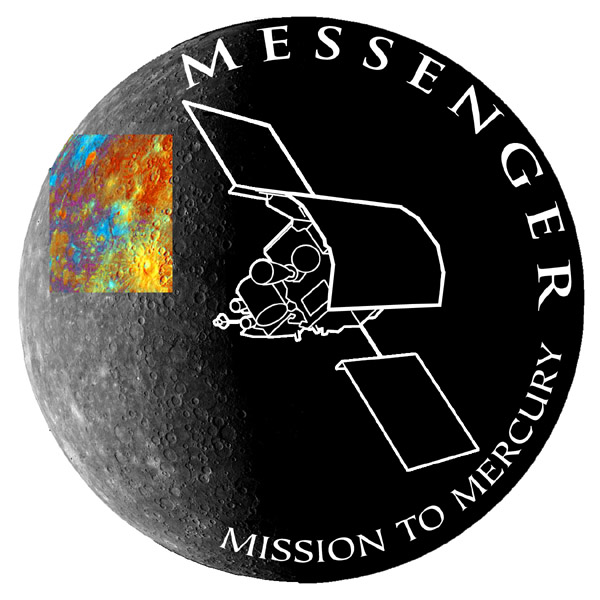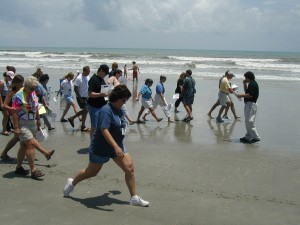Last update to this page: August 20, 2020

NCESSE oversees the MESSENGER Educator Fellowship Program, and the development of curriculum packages, in support of NASA’s MESSENGER spacecraft mission to the planet Mercury.
On August 3, 2004, NASA launched the MESSENGER spacecraft to Mercury, the second mission to the planet. Unlike its predecessor Mariner 10, which flew by Mercury in 1974 and 1975, MESSENGER will enter orbit in 2011 and begin a full year of observations. MESSENGER is destined to change our view of Mercury—and how our Solar System was born.
MESSENGER is a NASA Discovery Mission headed by the Carnegie Institution of Washington (CIW) and managed by the Johns
Hopkins University Applied Physics Laboratory (APL). It was taken from idea to reality by a remarkable, inter-organizational team headed by Sean Solomon, Director of CIW’s Department of Terrestrial Magnetism. Sub-teams for engine

ering, mission operations, science, and the suite of instruments aboard the spacecraft provide areas of concentration that make a space flight mission possible.
There is a dedicated team of organizations conducting education and public outreach (E/PO) activities in support of the mission—so that the human race can go along for the ride. The National Center for Earth and Space Science is an organizational member of the E/PO Team.
The Center oversees:

Training for the MESSENGER Educator Fellows, Cocoa Beach, Florida, August 2004, during launch of the MESSENGER spacecraft. Click for Zoom and Details
• The development of the grade 5-8 (middle school) and grade 9-12 (high school) units of the MESSENGER Education Modules—conceptually powerful grade K-12 compendia of lessons addressing Solar System science and engineering. These include the Voyage Education Module on Solar System science, and the Staying Cool Education Module on engineering. A Mission Design Module will be completed in Spring 2010.
• The MESSENGER Educator Fellowship Program, through which we recruit, train, and support a corps of 30 of the best science educators in the nation—the MESSENGER Fellows. The Fellows in turn train 3,000 teachers a year on the MESSENGER Education Modules, through professional development workshops they conduct across the nation.
As of November 2015, 25,267 grade K-12 teachers have been trained at 992 workshops conducted by the Fellows over the last 12 years. The goal is to train 27,000 teachers over the mission lifetime, translating into experiences for over 1 million students.
• Delivery of Solar System content through the Center’s community initiatives, e.g., Journey through the Universe, and Family Science Night at the National Air and Space Museum, with participation by the MESSENGER Fellows and MESSENGER scientists and engineers.
• Coverage of MESSENGER mission milestones on the web through the Center’s online initiative Blog on the Universe.
|
“I love space science—my students are also extremely interested in the future of space exploration. This workshop gives me tons of resources to use to teach them what they are interested in. Great use of hands on activities to recreate in my classroom! Thank you!” |
Other MESSENGER pages of interest:
The MESSENGER Mission
Mission Gallery
Mission Updates at Blog on the Universe
An Extensive List of MESSENGER education links, lessons and other resources at Blog on the Universe
How to Participate:
Contact us to see if there is a professional development workshop being conducted in your area by a MESSENGER Fellow, or to schedule a workshop for your school or school district.
NCESSE education and public outreach activities in support of NASA’s MESSENGER Mission to Mercury are funded under contract to the Carnegie Institution of Washington.
